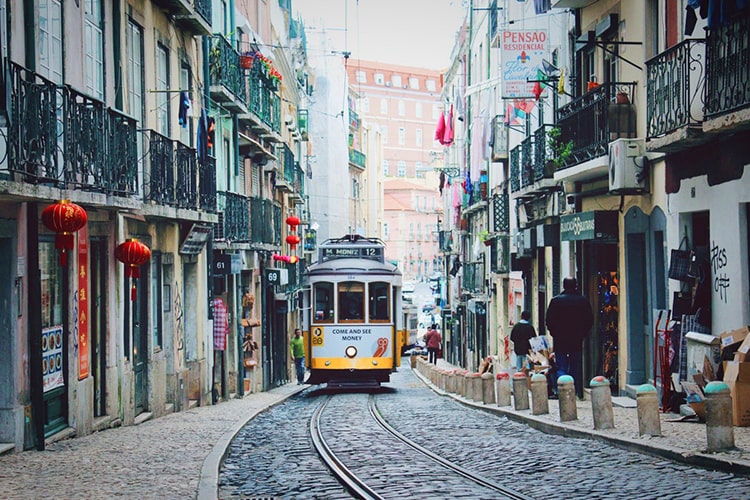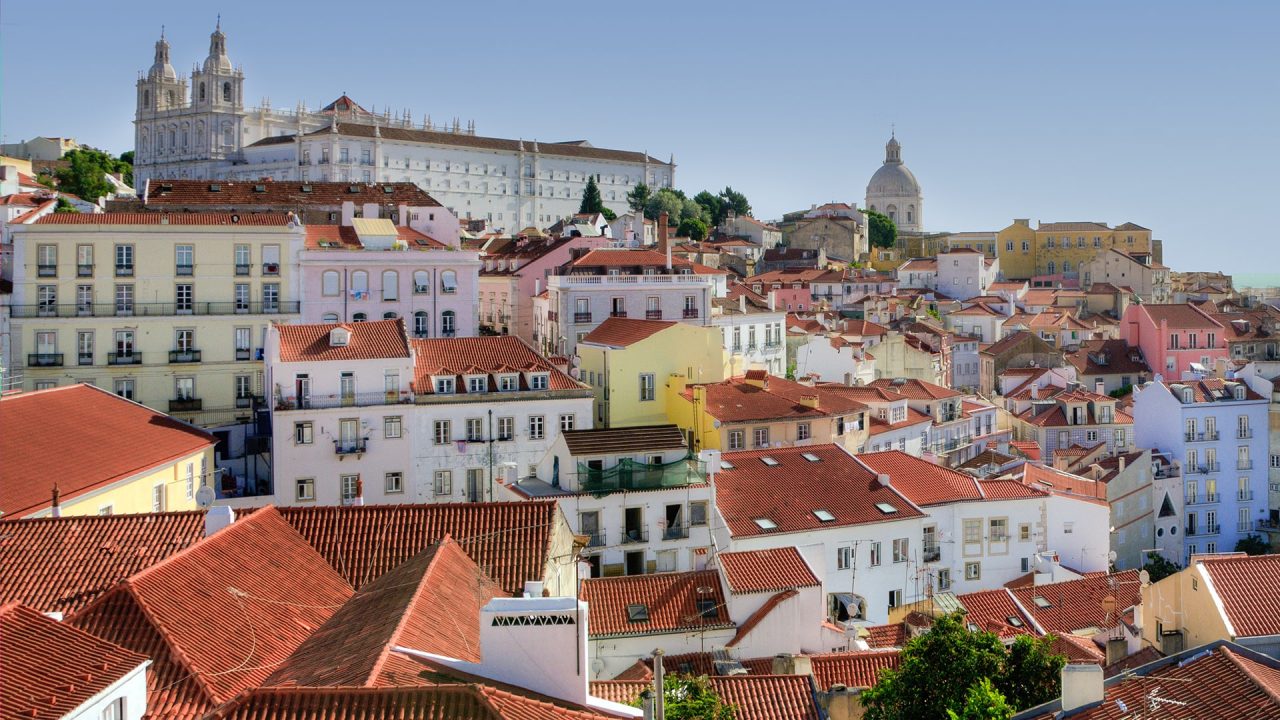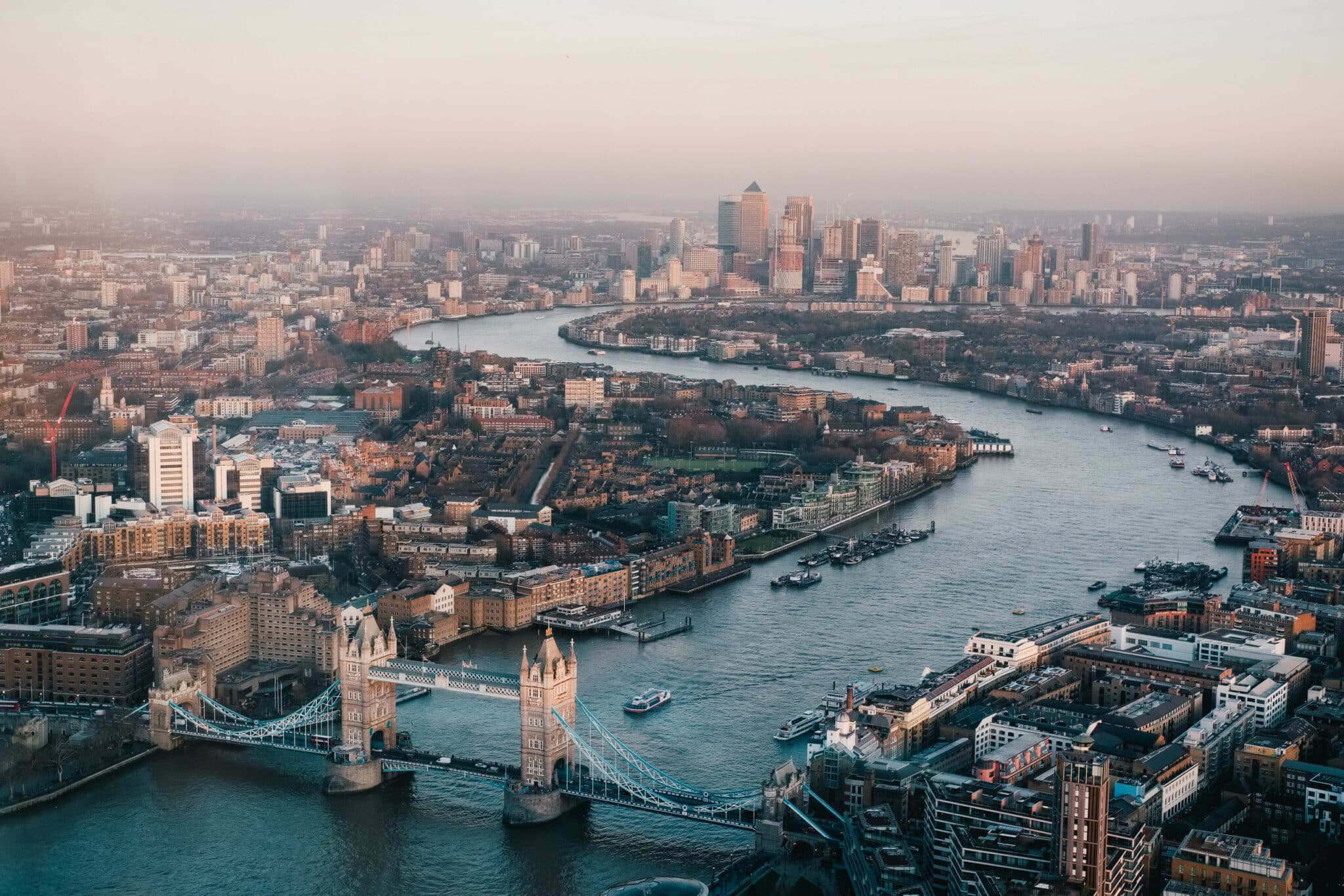Olá, People! Here, you’ll be able to find everything you need to know about the cost of living in Portugal. Today, we will help you know more about how much it costs for the most basic things like food and housing, as well as some things that are not so basic, but that we consider factors that improve the overall quality of life.
Is the cost of living in Portugal cheap?
In general, the cost of living in Portugal is considered fairly low. Obviously, it depends on how much you earn, but when compared to the rest of western (or even southern) Europe, it is cheaper to live in Portugal. However, that does not translate to a rich population, due to the low wages and the low minimum national wage (€580 per month). It does make the country seem like a cheaper destination for the majority of visitors. Below, we have created a list according to our experience and the prices that are applicable in 2018. Stick with us and see how the prices of housing, food, water, electricity, and other services determine the cost of living in Portugal.
Cost of Housing in Portugal
First, let’s start with the most basic necessity: housing. The cost of housing in Portugal can largely be influenced by:
- the area you decide to live in;
- the type of housing you seek.
Renting or buying does not influence the norm; prices will vary accordingly to:
- the city;
- the zone;
- the distance from the city centre.
Buying a House
In a practical way, consider the following situation: You decide to move to Portugal and buy an apartment or flat in the interior (we are talking about the zones of the country farthest from the beaches, close to the border with Spain). A two-room apartment in that zone can be as cheap as €45,000 and go up to about €100,000, with the price per square metre being between €500 and €1,000. Obviously, that depends on whether you pick an apartment near the city centre or not and also whether the apartment is new and has furniture in it, or not. Now, consider another situation: You wish to move to Portugal but you would like to be in the busier part of the country, so you would like to buy an apartment near the coast. In this case, prices will almost certainly be higher. The same two-room apartment we talked about earlier would cost at least 50% more in the district of Aveiro, for example, which is between Lisbon and Porto. That would also be the case in Setúbal, near Lisbon. However, the closer you get to the big cities, the higher the prices (the same apartment in Lisbon for €250,000 would be considered a great deal). The same applies to a house on the beach.
Renting a House
Concerning renting a house in Portugal, the case is more or less similar. You will very likely pay more in Lisbon and Porto (maybe double or more) when compared to the rest of the country. In the interior, you would be able to find an entire house for €250 per month, whereas in Lisbon or Porto, you could pay double just for a room. However, keep in mind that all these prices reflect some of the services, commodities, and opportunities you will have at your fingertips if you live in a city like Lisbon or Porto. That said, we would say that you would almost certainly have to pay between €200 and €600 per month on housing.
Monthly bills in Portugal
What about the price of water, electricity, gas, TV, internet, and communications? Once again, the prices of basic services in Portugal are not as high as in some other European countries. The cost of water, for example, varies very little throughout Portugal. You could pay about €1.5-2 per m³. Unlike the water services, which are provided by, and paid to the city halls or a company named by them, the electricity service is provided by a few large companies, the biggest being EDP. This company will ask for an average of €0.16 per kWh. If you prefer heating your water on gas, consider that the price would be about €0.05 per kWh, on average. Communications, TV, and Internet services are mostly provided in promotion packs by telecommunications companies. You could find packages including all services from about €25 or €30 per month up to €60 per month. It is up to you what services you want and what you are willing to pay for. Summing up all of these amounts, we would say that a two-person household with average lifestyles and average spending habits would pay about €15 to €20 for water, €65 for electricity, €20 for gas and €50 for the TV, Internet and communications per month.
Cost of food and other goods
The cost of living in Portugal is fairly low mainly because of the price of food and essential goods. When compared with the rest of Europe, most of the supermarket shelf items we find are cheaper than in other countries. For example, you could buy:
- a loaf of bread for €1;
- one kilogram (2.2 pounds) of rice for €0.60;
- pasta, milk and many other basic items for under €1 each;
- one kilogram (2.2 pounds) of meat could cost you between €2 and €10, depending on the cut and on the source;
- fresh fish from €5 to €10, maybe €12 per kilogram (2.2 pounds);
- really cheap vegetables for under €1 per kilogram (2.2 pounds).
All in all, we would say that a two-person household would not have to spend more than €300 per month in the supermarket for a good, healthy and balanced diet.
Cost of transportation
Owning a car or using public transport in Porto? We would say that, just like in almost every developed country, public transportation is cheaper than owning a car.
Cost of using a car
Consider the following costs when owning a car: you have to pay for the car, fuel (about €1.50 per litre of petrol/gasoline and €1.40 per litre of diesel), taxes (that depends on numerous factors, but estimate it between €60 to €150 per year), insurance (about €300 to €500 per year), vehicle inspection (about €30 per year) and all the maintenance costs.
Cost of using public transportation
You could skip all of these costs and the trouble of driving in busy traffic by using public transportation. On average, we would say that you would not pay more than €90 per month. And that would be if you would need to get around in the most expensive areas of Lisbon. Otherwise, you could easily pay only €30 to €50 per month and get around easily.

Cost of healthcare
It is well known that Portugal has a very good healthcare system. Imagine that if you are in Portugal and you need to go to the doctor, most likely you will not pay more than a Portuguese citizen. We are talking about €4.50 for the visit at a regular medical centre or a maximum of €18 per visit in case of an emergency at a hospital. That’s it! When it comes to buying your medicines, that is also cheaper in Portugal. Besides, the state will subsidise most of the cost of your medicine, unless you choose to buy the most expensive one. For example, if you are diabetic, you are most likely going to spend a maximum of 10% of the real cost of your medicines and materials. Basically, you will not spend too much on your general health in Portugal. However, if you choose to go to a private doctor, you will certainly pay a lot more. But even then, there are many health insurance policies you could buy which would reduce those costs considerably. The same applies to dentists.
Cost of education
Being in a public school in Portugal is free of charge. With the exception of the inscription fee and the insurance (total of about €20 to €30), you pay nothing for your children to be educated. However, the books and materials that are needed are not all free, yet. Depending on the school year your child is in, you could spend between €200 and €350 on books and school materials per child per year.
Tuition costs
When it comes to university, depending on the degree, annual tuition costs between a €1000 to €2500 per year in any public university. If you choose a private school or university, the costs are very different and a lot higher.
Other costs of living in Portugal
Ok, the basics are covered. It’s time to talk about some other costs that are also important to us, such as buying clothes or eating out.
Clothes spending
Assuming that the average person in Portugal is interested in the average brands of clothing, we could say that there are many well-priced options. Of course, you could find Gucci and Prada stores, but we shouldn’t include them in the expenditures of an average life. Most shopping centres in Portugal will have almost the same (or very similar) stores. For example, you’ll be able to find Zara, H&M, and Mango stores in almost every shopping centre. In those stores, you’ll pay between €15 to €30 for a t-shirt or a long-sleeved shirt and about €30 to €50 for a pair of jeans.
Taking it up a notch
For something more formal, you could choose something like Sacoor Brothers or Massimo Dutti. In these stores, you’ll easily find a good shirt for about €90 and a decent suit for about €300. Keep in mind one important thing: it pays to plan your shopping. Most of the clothing stores have massive sales in September and January with 30% to 50% off and sometimes even 70% off! Just imagine the possibilities of buying a year’s worth of clothes for a fraction of the price.
Eating out costs
When compared to other developed countries, you could say that eating out in Portugal, on a normal day, in an average place, is really worth it. Of course, it will always be more expensive than eating at home, but for around €10 a meal, we are inclined to say that it’s a pretty good deal. Usually, lunches are cheaper than dinners and it really depends on the zone and the restaurant. But you can find, without much of a problem, a really nice and regular place where you could enjoy a complete meal for €10, maybe €15 depending on the wine you choose.
Going out costs
Speaking about wine, going out with friends can cost you more, or less. Again, depending on the places you choose, you could pay €5 for a beer in a fancy establishment, or €1 for the same beer in a local bar. You could find wines that cost €5 in a supermarket but it will be €30 in a bar or restaurant for the same bottle. An espresso coffee costs around €0.70, but there are places that ask €1.20 for the same thing. Usually, it’s for the experience of being in that particular café or city location. Therefore, it can be cheap to go out, but if you’re not careful, you could spend more than you really have to.

So, what is the cost of living in Portugal really?
Well, let’s see. On average, for a two-person household, without kids, you would spend about:
- €400 on housing;
- €150 on your house services;
- €300 on food;
- €40 each on public transportation;
- maybe €40 per month each for going out and eating out;
- the occasional visit to the doctor and medicines, let’s say on average €10 per month for a healthy person.
That all adds up to a total of €1030 per month. Plus, let’s also consider the annual cost of clothes which might be about €300 per person (€25 per month). That translates to €1055 per month on average. If a child is involved, we would have to consider the costs of schooling, but the average cost of living per person would be slightly higher anyway. So there you have it. The minimum cost of living in Portugal is about €528 per month per person on average. Of course, you can spend a lot more if you are willing, but these are the basics (and maybe a bit more than that).
And the cost of living for a comfortable life?
€528 per person. Is that really enough? To live a comfortable life? It depends. Do you want to have a swimming pool during the summer? Or have the heater working 24/7? Then €528 will not suffice. In our opinion, you need at least €1500 (€750 per person) to be able to live at ease in Portugal, specially if you live in Lisbon or Porto, where commodities and rent are higher.
Best-case scenario
On a personal note, it may seem cheap to live in Portugal but remember that this value is pretty close to the minimum wage. Keep in mind that this is a ‘best-case scenario’ average cost of living estimate and that some items considered can skyrocket just because you are in Lisbon, for instance. If you wish to live in Portugal for some time, it is important that you study your income and what city or zone fits best for you. Of course, there are some jobs you can only get in big cities, but Portugal, although small, is a beautiful country, ripe with opportunities.
The cost of living in Portugal is quite affordable for most
Our advice concerning the cost of living in Portugal is: Plan in advance. Yes, whether you are moving, visiting or just passing by, try to get some information about where you are going and what to expect. Portugal can be cheap, but it can get very costly for the unaware. There is, however, something that adds to the experience of living in Portugal: the weather! It is awesome and it is completely free! Enjoy! We quoted everything in euros as it’s the currency used in Portugal, but you can convert it into your currency at Xe.com. Did we miss any important information? Do you have any experiences to share? Feel free to leave a comment below.We publish new content every day so be sure to subscribe to our newsletter to get notified of the latest tips for your visit or move to Portugal.







